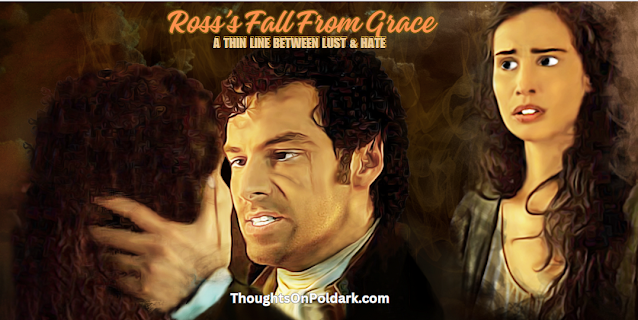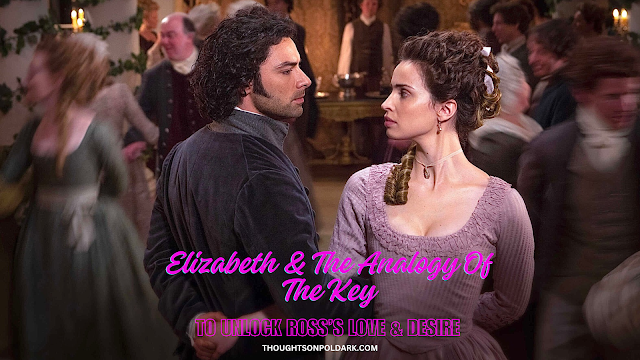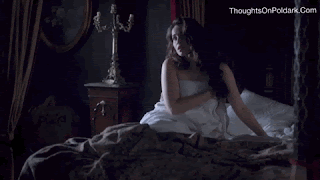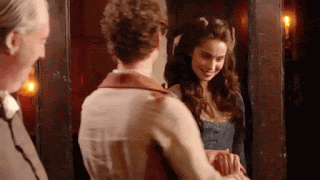'In lust there is always conquest and destruction.'
Ross Poldark Internal Book 1 Chapter 18 Part 2
Of the two of them it was Ross Poldark who was the first to be unfaithful to Demelza on ninth May 1793. This was six years into their marriage and three years before Demelza did the same. The previous essay A Fall From Grace in a Fall For Hugh explored what Demelza thought were the reasons behind her infidelity with Hugh Armitage and set out over a number of pages her extensive self reflection and examination in the aftermath. But there were no pages of this of any such by Ross in respect of his infidelity. Perhaps it was because Ross was confused by his actions. After all he did deem it to be 'unexplainable'. However in the penultimate book of the saga Ross thought of '...the few minutes of anger and lust and overpowering frustration from which Valentine could have been born.' ('The Twisted Sword' Internal book 3 chapter 8 part 5) In any case, from the outside looking in and with Graham's narration to provide aid, it is possible to understand what Ross found was unexplainable to himself. Therefore, whilst this specific essay does not seek to consider whether this 'May incident' was a matter of rape or not, it will focus primarily on 'the scene' just before where Ross 'took' Elizabeth and how the reasons and factors for Ross's own fall from grace are surprisingly similar to Demelza's. But, it will also explore how on the other hand the presence of a separate most triggering and a wholly negative emotion is where there is the difference and in turn makes Ross's fall a more sordid and ugly affair because in the moment Ross was directed by a hate that was destructive.
Just Like Demelza's Reasons
'It had happened, cut off from the rest of the world...opportunity, which had settled on them like a strange bird, making unreality out of isolation and giving her the feeling that she was no one, except a name-less woman to be taken by a nameless man.'
Demelza's reflection on her infidelity 'The Four Swans' (internal book 3 Chapter 1 part 2)
Demelza's reflection on her infidelity 'The Four Swans' (internal book 3 Chapter 1 part 2)
Like Demelza, as set out in the A Fall From Grace in a Fall For Hugh post, the factors in place which coaxed Ross's infidelity were 'attraction', 'opportunity' and the 'unreality out of isolation'. Indeed, just as there is no dispute that Demelza was attracted to Hugh Armitage, there is no doubt that Ross was attracted to Elizabeth. Just like Demelza ended up on a deserted beach with Hugh and this provided an opportunity and a venue for her infidelity to take place, a perfect opportunity and venue was provided for Ross to sleep with Elizabeth. After barging in to Trenwith and then following Elizabeth into her bedroom out of fear that she might be going to call for help, whether he had plans for one or not Ross found himself in the ideal place for a tryst with her. There was no other person present and so this served to similarly provide the isolation that the deserted beach provided for Demelza with Hugh.


.GIF)
%20(1).jpg)



.png)

.png)


.png)
.GIF)




.png)

.png)











